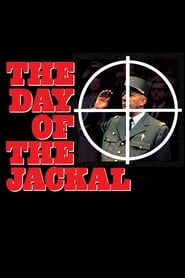The Day of the Jackal poses as a rigorous depiction of some factual event, but it feels to me like it has a prurient interest in what, on the surface, it appears to distance itself from. First, the assassin's and the police's methods are painstakingly detailed, not dissimilar to how modern true crime podcasts pose as scrupulous uncovers of 'the facts' as a thin cover for having an unhealthy interest in the sordid death of another. And once you start to notice it, it is difficult to avoid remembering that the book was written by a Eurosceptic British Tory, and that the book is, in part, a dig at the 'overly emotional' French (and thus a vindication of British exceptionalism) and paradoxically also seeming to enjoy luxuriating in that same semi-Fascist atmosphere of, inter alia, cold-blooded killers, official secrets, the veneration of 'heroic' war veterans, lying to the press, demands for "papers please" (backed up by a machine gun), state military parades, centralised intelligence gathering, warrantless wiretaps, identity cards, excessively armed police at public events, etc. etc. Everything seems to be deliberately constructed to subvert this interpretation: the newspaper-like reportage as briefly touched on above, and the fact that, as well as the events are happening to 'foreigners', they are all depicted as being failures so as to activate the "oh no, they aren't actually effective" defence. Another key bit of evidence is that the film seems thoroughly uninterested in its (good!) noir twist in the tale: it is so very easy to miss the import of the (rushed) sequence at the end in which it is revealed that nobody actually knows who the Jackal was. Anyway, coding the assassin as effete and possibly homosexual (who poses as a man with a disability withal) is just another element that makes this film just a little… smelly. I don't think it was too much of a coincidence that Susan Sontag's seminal takedown of Leni Riefenstahl, Fascinating Fascism was published the year after this movie in the New York Review of Books, and it's difficult not to see the same voyeuristic psychological mechanism at work in The Day of the Jackal as she writes about the quasi-sexual interest in the English-language book of Nazi uniforms.

